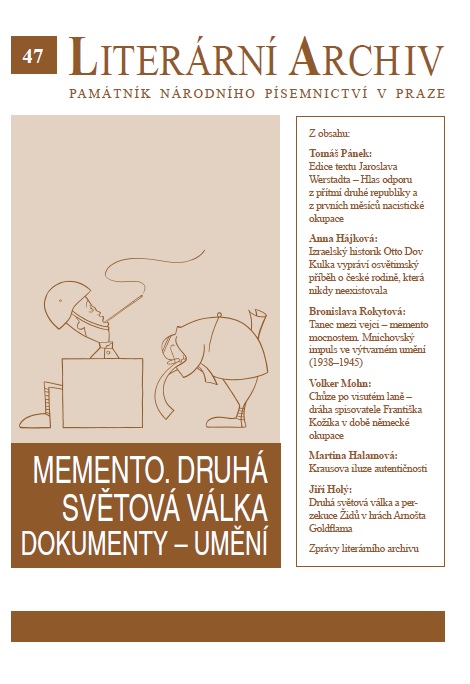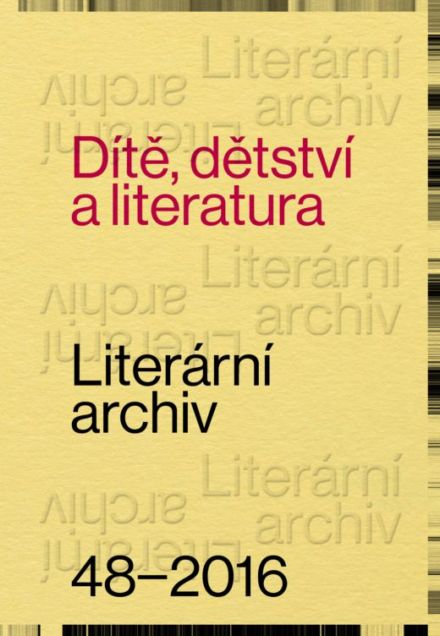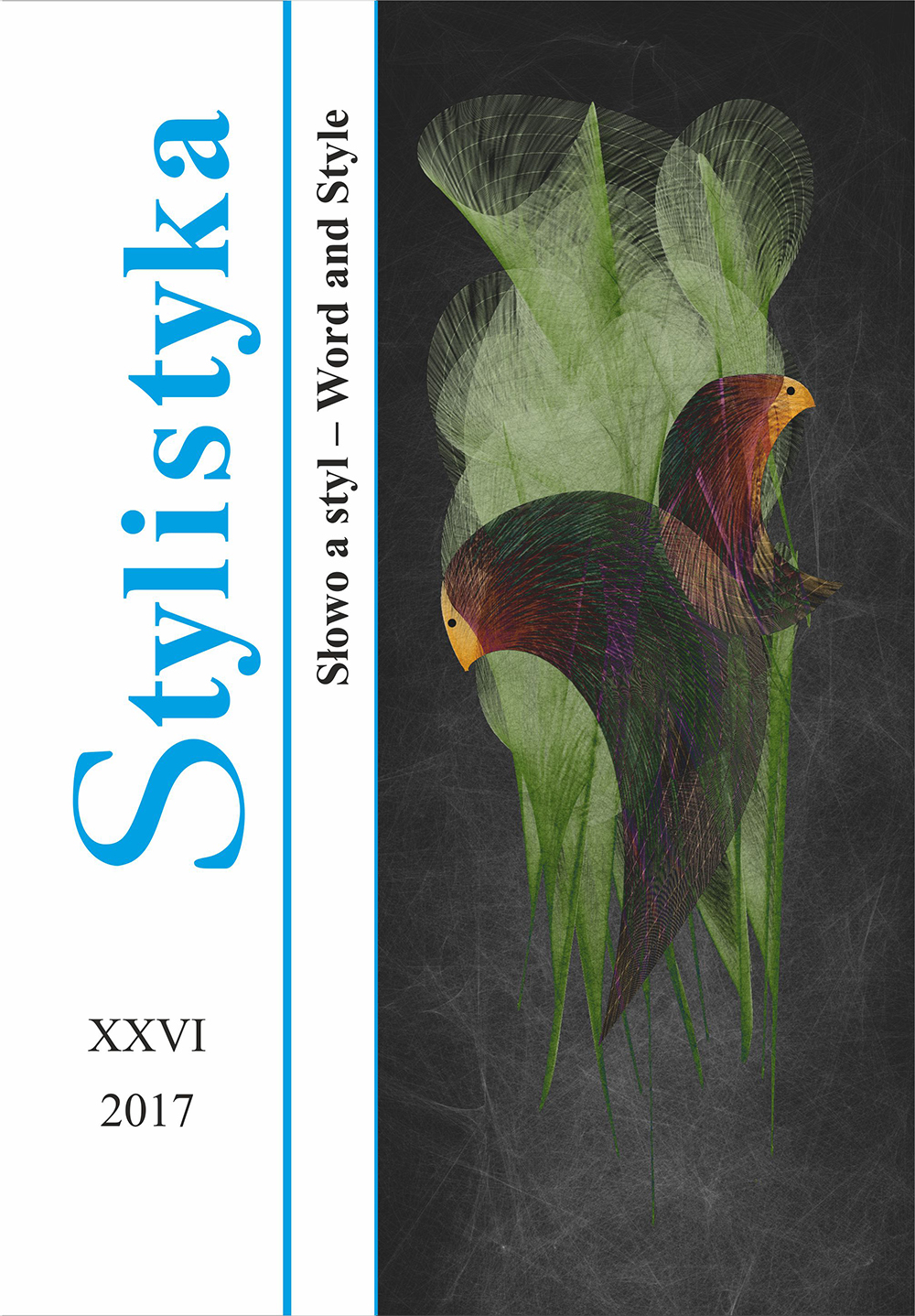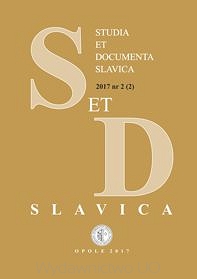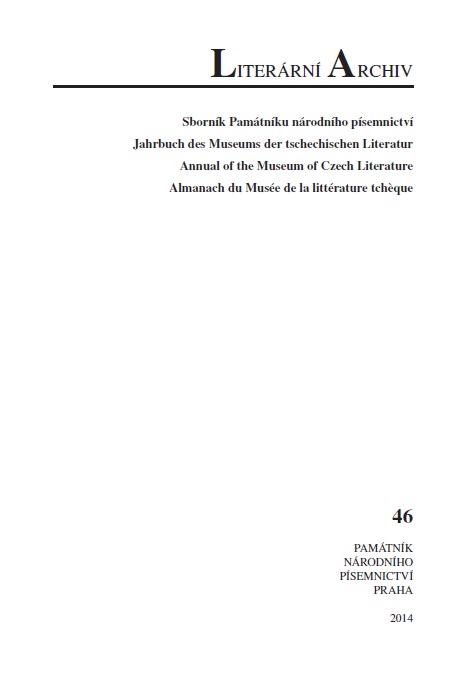
Hrabalovo estetické a etické tázání
This essay is concerned with Hrabal’s attitude to great writers of the twentieth century and their views the suther of the essay compares and contrasts Hrabal’s works with the works of Jaroslav Durych (1886–1962), which are based on a Christian outlook, in particular Boží duha (The iris of God, 1969). Apart from that, she typologically puts Hrabal’s work in a category with some of the fiction of VladislavVančura (1981–1942) and Karel Schulz (1988–1943). She perceives a certain parallel in the dreaminess of the Surrealist leading of the narration, and demonstrates this feature by discussing Durych’s Bloudění (Wandering, 1929; published in English as The Descent of the Idol, 1936), Vančura’sMarkéta Lazarová (1931), and Schulz’s Kámen a bolest (Stone and pain, 1942). The second part of the essay considers the outsider, a typical theme of twentieth-century fiction.Here appears the thesis, which the author finds doubtful, about the relationship between Hrabal’s characters and Camus’s themes of alienation and guilt. The essay concludes by stating that Hrabal as an author is both a Naturalist and a Surrealist.
More...
